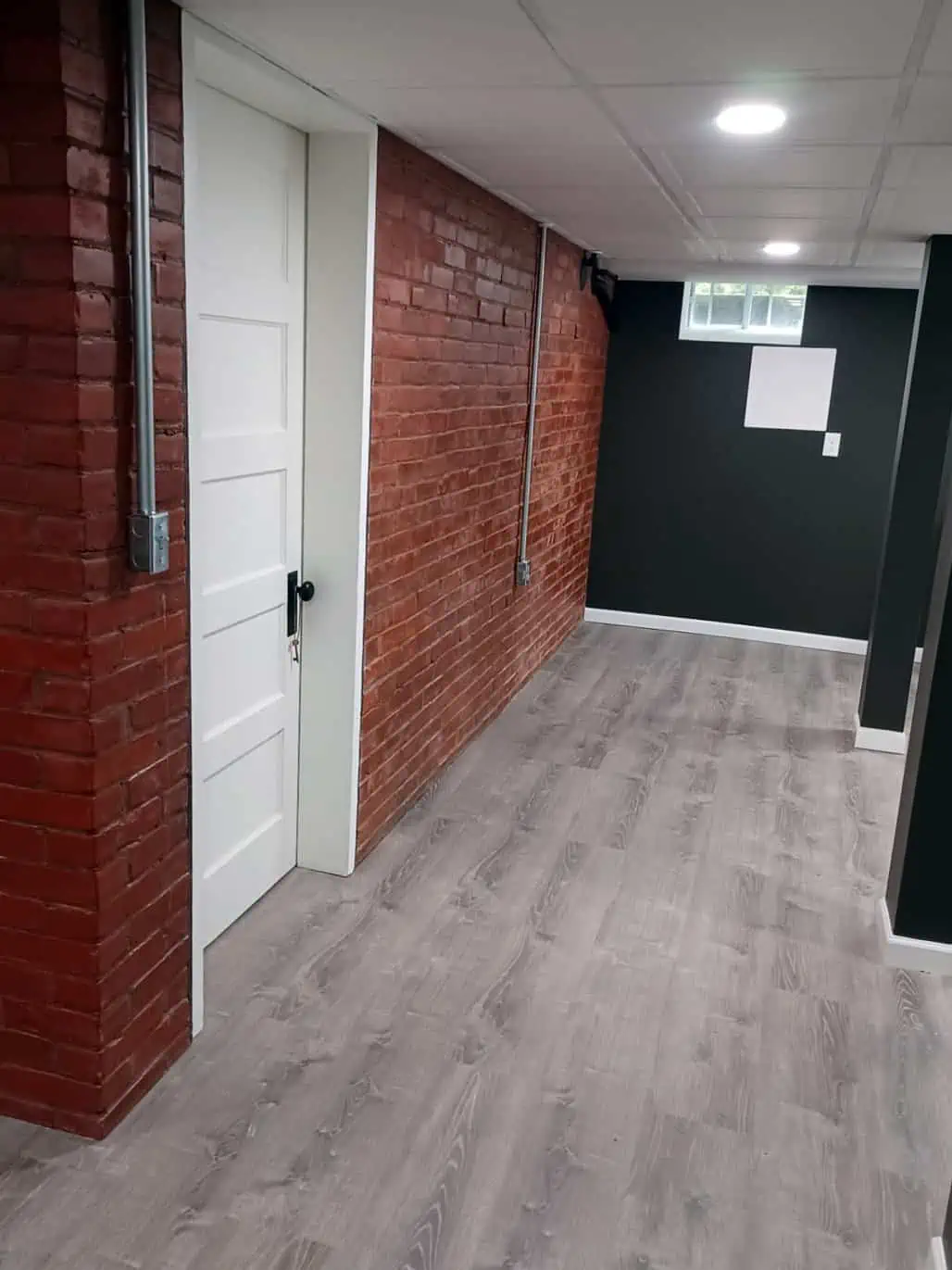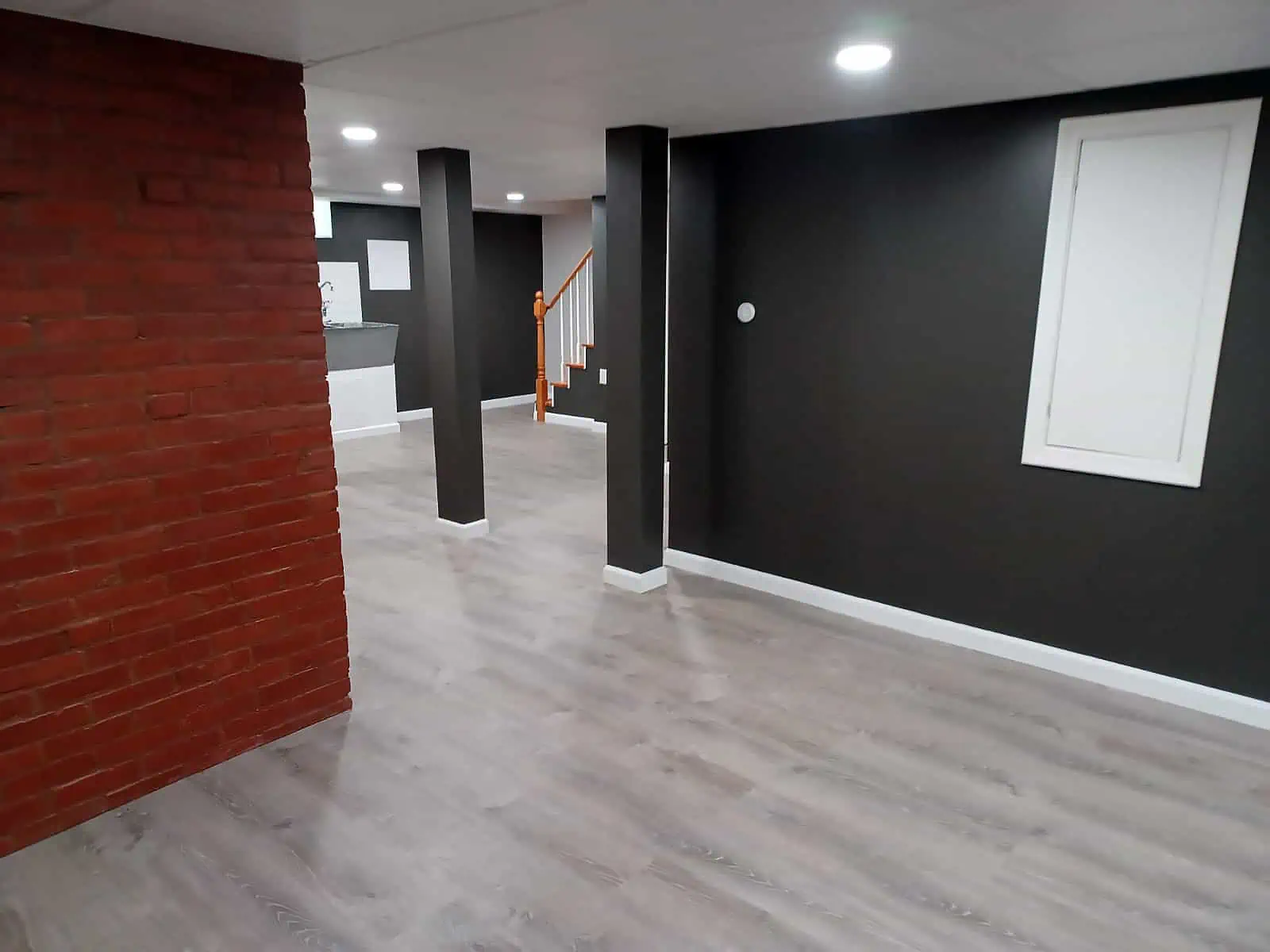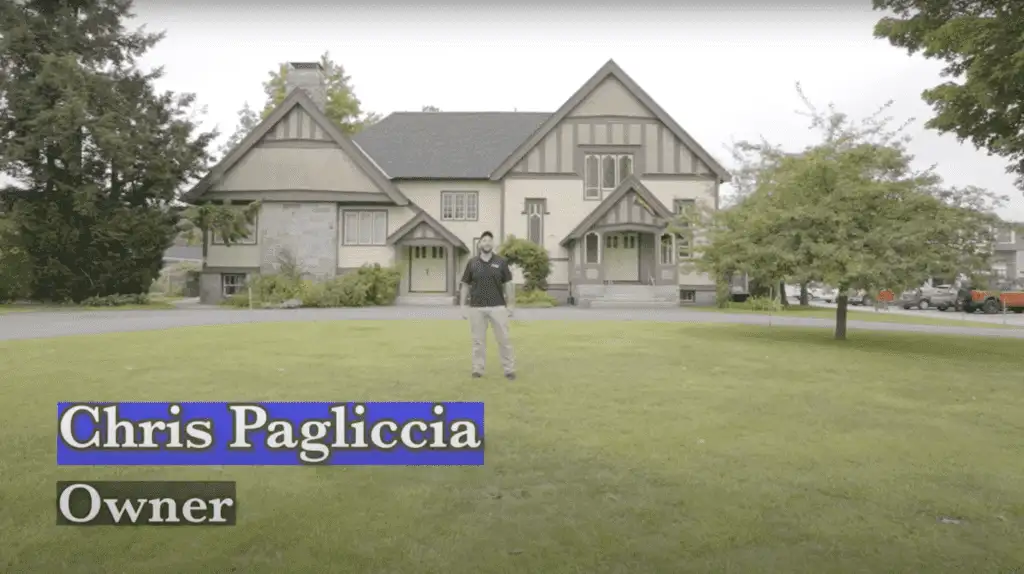Basement Finishing Winchester MA
Basements hold immense potential. They often sit unused or underutilized, yet they can become some of the most valuable spaces in a home. Whether you’re looking to create a family room, a home office, or a private retreat, a finished basement is the key to unlocking that untapped potential.
Real People - Real Great Results
Crawl Space Video Playlist
The Benefits of Basement Finishing
Basements are underrated. Sure, they might be dark and slightly musty now, but with a little effort, they can transform. Here’s the deal: a finished basement isn’t just an upgrade—it’s a game changer.
- Increased Living Space: Let’s get straight to the point: every square foot counts. A finished basement turns that dead space into something functional. Need a place for the kids to hang out without cluttering the living room? Done. Want a quiet home office away from distractions? Easy. With the right design, your basement can be anything your home is currently missing.
- Boost in Property Value: Real estate is simple math. More usable space = higher value. By finishing your basement, you’re literally adding livable square footage, which appraisers love. Plus, potential buyers see it as one less project they’ll have to tackle. It’s an investment that often pays for itself when it’s time to sell.
- Customized Functionality: Cookie-cutter renovations are out, and basements are your blank canvas. Maybe you want a gym where you can blast your playlists guilt-free, or an epic movie room with a recliner for every family member. Whether it’s a guest suite, a crafting area, or even a small rental unit, the basement can adapt to your needs.
- Energy Efficiency: Here’s something not everyone thinks about: a finished basement can save you money on utilities. Proper insulation is a game-changer, trapping heat in the winter and keeping things cool in the summer. That’s less strain on your HVAC system and more wiggle room in your monthly budget.
Ultimately, the benefits speak for themselves. A finished basement isn’t about keeping up with the neighbors—it’s about maximizing what you already have and making your home work harder for you.

Assessing Your Basement’s Condition
Before jumping headfirst into finishing your basement, you have to deal in realities, not dreams. That means taking a hard look at what you’re working with. Every basement has quirks, and if you skip this step, those quirks can become full-blown disasters down the line. Let’s break it down.
Moisture and Waterproofing
Basements and moisture—name a more iconic duo. Water always finds a way, whether it’s seeping through walls, pooling near the foundation, or hanging out as high humidity. Before you start thinking about paint colors or furniture, you need to handle water like it’s your worst enemy. Inspect for visible leaks, water stains, or a musty smell. If you detect an issue, it means sealing cracks, improving drainage outside your home, and possibly investing in systems like sump pumps or vapor barriers. Waterproofing isn’t glamorous, but it’s your basement’s first (and best) line of defense.
Structural Integrity
A finished basement isn’t worth much if the foundation is fighting to stay upright. This step is all about stability. Look for cracks in the walls or floor—hairline might be okay, but bigger gaps can be a sign of something serious. Pay attention to any sagging beams or bowing walls. Bring in a structural engineer if anything feels “off.” Playing it cautious here can save you from bigger, nightmarish problems down the road.
Code Compliance
If you’re in Winchester, MA, understand that the rules aren’t optional—they’re mandatory. Building codes are in place for safety, and they vary by region. For example, basement ceilings typically need specific minimum heights, windows might need to meet egress requirements for bedrooms, and electrical setups must be up to date. Knowing these codes upfront avoids headaches when the inspectors come knocking. Research them yourself, or better yet, consult a pro who’s familiar with your area. Rule of thumb: don’t skip permits; cutting corners comes back to haunt you.
Before anything cosmetic happens, assess, address, and confirm. If your basement isn’t ready for finishing, forcing it will just mean costly headaches later. Do it right the first time.

Planning the Perfect Basement Finish
Planning your basement finish is where the dream starts taking shape, but it’s also where practicality keeps you grounded. Begin with a purpose. What’s this space really for? A home theater might sound exciting, but if your family’s more about board games and craft nights, you’re better off with a multi-purpose rec room. Clarity here saves time, headaches, and money.
Next, sketch out a layout. You don’t need professional drafting skills, just a sense of how the space will flow. Keep in mind things like walking paths, the placement of larger furniture, and storage. Corners and nooks can be smart spots for built-ins or closets. A clear layout ensures the room isn’t just finished—it’s functional.
Lighting requires extra attention in basements. These spaces can feel claustrophobic if poorly lit. Aim for a combination: recessed ceiling lights for even brightness and task lighting in specific areas like desks or reading corners. For bonus points, maximize natural light. If you can, install egress windows or even light wells to break up the underground feeling.
Lastly, don’t forget ventilation. Basements often struggle with stale air and humidity, so make sure your HVAC system has you covered. Portable dehumidifiers work in a pinch, but an integrated solution helps maintain comfort year-round, especially in Massachusetts’ damp seasons.
Planning isn’t flashy, and yeah, some of it feels like a chore, but it’s the backbone of a basement that works. Skip these steps, and you’re setting yourself up for regrets. Get it right, and you’re carving out a space your family will actually want to spend time in.
Essential Elements for a Finished Basement
When it comes to finishing your basement, mastering the essentials is non-negotiable. A polished look and long-term comfort start with the right materials and systems. Here are the core elements you need to get right:
- Walls and Insulation: Basements aren’t like the rest of your house—they sit below ground level, making moisture a constant threat. Skip traditional drywall and opt for moisture-resistant options, like mold-resistant drywall or foam board insulation. They’re built to handle damp conditions without compromising comfort or air quality. Don’t skimp on insulation either—whether you go with fiberglass, spray foam, or rigid board, a well-insulated basement keeps things cozy in winter and cool in summer. Think of it as an investment in year-round comfort.
- Flooring Options: The wrong flooring in a basement can be a dealbreaker. Carpet might sound comfy, but it’s a sponge for dampness. Instead, go with waterproof and durable choices: vinyl planks look sleek, are easy to install, and withstand moisture like a champ. Tile is another solid option, especially for areas prone to spills or potential water exposure. And if you’re leaning minimalist, sealed concrete is modern, low-maintenance, and surprisingly stylish with the right finish. Just make sure you handle any cracks in the foundation first—your basement deserves a dry, solid base.
- HVAC Considerations: Your HVAC has to work just as hard in a basement as it does upstairs, but it also has different challenges. If your heating and cooling game is lacking, your new space could feel like a sauna in summer or a freezer in February. Extending existing ductwork might make sense, but portable or ductless systems often work better. And don’t forget a dehumidifier—it’s practically essential in Winchester’s humidity-laden summers.
- Electrical and Plumbing: A finished basement isn’t just visual—it’s functional, too. Whether you’re adding a bathroom, a wet bar, or wiring up a home theater, your electrical and plumbing systems need an upgrade. Older basements often lack sufficient outlets for modern usage, so think ahead—USB ports and additional outlets aren’t overkill. If plumbing is part of the equation (think laundry room or bathroom), consult a professional to prevent surprises down the road. There’s nothing like a hidden leak to ruin your hard work.
Nail these foundational elements, and you’re not just finishing a space—you’re building something that lasts. Basements are tricky beasts, but when you respect their quirks, they reward you with unparalleled versatility and value.
Hiring a Professional in Winchester, MA
Let’s face it: basement finishing isn’t just about slapping up a few walls and calling it a day. From waterproofing to wiring, there are a lot of moving parts you can’t afford to get wrong—and that’s where hiring a local pro comes in. Winchester, MA isn’t just another New England town; it’s home to specific building codes, climate challenges, and architectural quirks that demand expertise rooted in the area.
Sure, you might be tempted to go the DIY route. Maybe you’ve already got a Pinterest board loaded with weekend warrior inspiration. But while rolling up your sleeves may save you a few bucks upfront, it could cost you big time if mistakes like moisture mismanagement or electrical mishaps rear their ugly heads later on. Enter—a seasoned contractor.
A local contractor not only knows the ins and outs of the Winchester permitting process but also understands which materials hold up best in our New England climate. They can tackle tricky issues like low ceilings, uneven foundation slopes, or insufficient egress windows with solutions that meet both function and legal compliance. Plus, established pros often have team partnerships with electricians, plumbers, and HVAC specialists, giving your project efficiency and cohesion you just can’t replicate flying solo.
But let’s talk dollars, because that’s usually the sticking point for most homeowners. Hiring a professional doesn’t mean blowing your budget. In fact, their expertise can help you avoid costly pitfalls, shortcut time-consuming processes, and ensure you get it right the first time. They’ll also help you make smart material choices—ones that match your vision without wasting cash on gimmicks that won’t age well.
Bottom line? Unless you’re ready to spend your weekends battling unforeseen headaches (and likely redoing mistakes), a local pro is worth their weight in gold. Winchester’s homes deserve the kind of care and craftsmanship that only come from people who know the territory—literally. Your basement isn’t just extra square footage; it’s part of your investment, and bringing in the right talent ensures it delivers.

Conclusion
A finished basement isn’t just extra square footage—it’s a game-changer. It’s where a neglected or uninspired space can become the bustling heart of your home or a quiet personal sanctuary. Whether it’s a sleek home office, a cozy movie den, or a much-needed guest suite, the possibilities are as varied as they are practical. The key is to approach the project with intention: assess your basement’s condition, plan with function and lifestyle in mind, and make smart design choices that stand up to time, moisture, and daily life.
And don’t skip the pros. Trying to tackle every step solo can lead to costly mistakes, especially with local building codes and unique challenges in Winchester, MA. Professional input might seem like an added expense upfront, but it pays off when your basement not only looks incredible but is also safe and built to last.
At the end of the day, finishing your basement is more than a renovation. It’s an upgrade to how you live. Done right, it’s a decision you’ll thank yourself for every time you step downstairs.
Reviews from Happy Customers
Our top priority is customer satisfaction, and we work closely with clients to understand their unique needs and goals.






